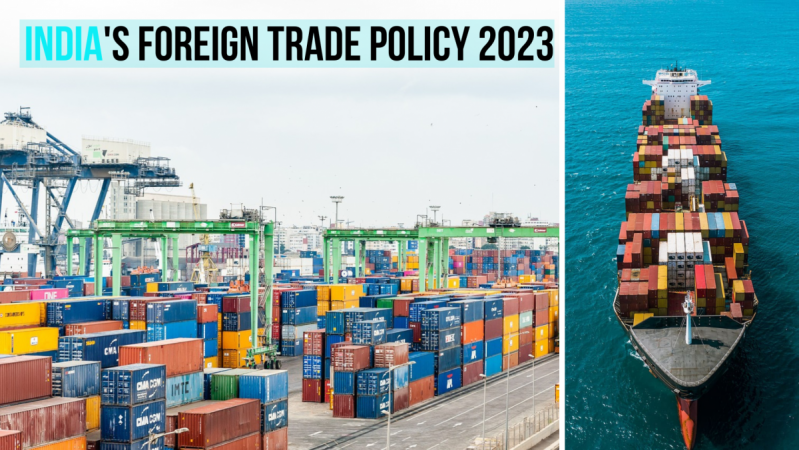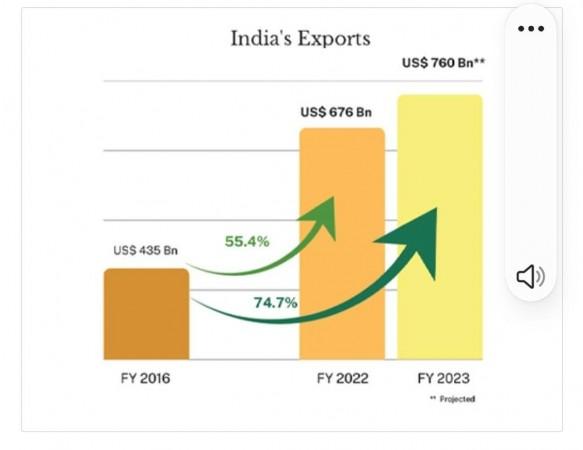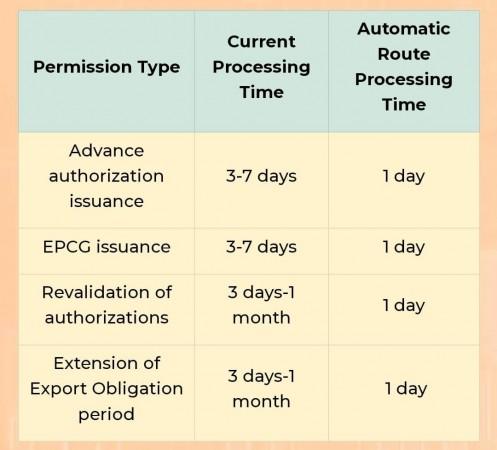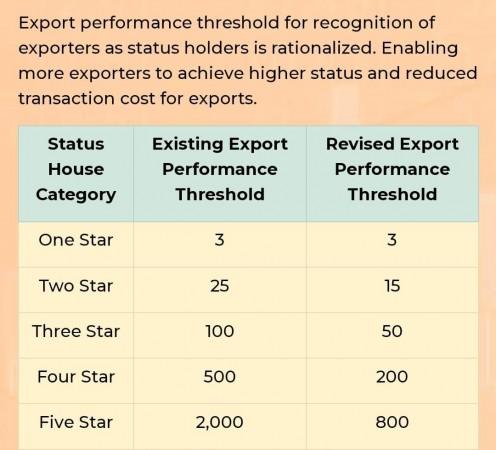The announcement of India's Foreign Trade Policy (FTP) 2023 marks a significant milestone in India's trade ecosystem. With a vision to increase exports manifold and propel India's export value to $2 trillion by 2030, the FTP 2023 focuses on dynamic and open-ended policies that accommodate emerging needs.
In this article I will endeavor to cover the key pillars and highlights of the FTP 2023, and analyze how these measures will shape global trade opportunities while examining the advantages for other countries to engage in trade with India.

I. Pillar 1: Incentive to Remission
1.1 Streamlined Duty Exemption Schemes
Under the FTP 2023, duty exemption schemes for export production will be implemented through regional offices in a rule-based IT system environment. This shift eliminates the need for manual interfaces, ensuring efficiency and transparency in the process. By reducing transaction costs and implementing automation, the FTP aims to facilitate ease of doing business for exporters, enabling them to access export benefits more seamlessly.
1.2 Amnesty Scheme for Defaulted Export Obligations
To alleviate the burden on exporters who have defaulted on their export obligations, the FTP 2023 introduces a one-time Amnesty Scheme. This scheme allows exporters to close old pending authorizations and start afresh, providing relief from high duty and interest costs associated with pending cases. The amnesty offers a fresh start for exporters, fostering trust-based relationships and reducing litigation.
II. Pillar 2: Export Promotion through Collaboration
2.1 Collaborative Approach with Stakeholders
The FTP 2023 emphasizes a partnership approach with exporters, states, districts, and Indian missions to promote exports. By fostering collaboration, the policy aims to leverage the strengths and capabilities of various stakeholders. State Export Promotion Committees and District Export Promotion Committees will be established to identify export-worthy products and services and address concerns at the district level. This approach accelerates the development of a grassroots trade ecosystem and promotes exports at the district level.
2.2 Towns of Export Excellence Scheme
The FTP 2023 recognizes the importance of local economies and designates certain towns as Towns of Export Excellence (TEE). In addition to the existing 39 towns, Faridabad, Mirzapur, Moradabad, and Varanasi have been designated as TEEs. These towns will receive priority access to export promotion funds and can avail benefits as Common Service Providers (CSP) under the Export Promotion Capital Goods (EPCG) Scheme. The TEE designation aims to boost exports of handlooms, handicrafts, and carpets.

III. Pillar 3: Ease of Doing Business
3.1 Process Re-Engineering and Automation
The FTP 2023 emphasizes process re-engineering and automation to facilitate ease of doing business for exporters. The policy shifts from an incentive regime to a facilitating regime based on technology interfaces and collaboration. By codifying implementation mechanisms in a paperless, online environment, the policy builds upon earlier initiatives to enhance the ease of doing business. Reduced fee structures and IT-based schemes make it easier for micro, small, and medium enterprises (MSMEs) and other exporters to access export benefits.
3.2 E-Commerce Exports Facilitation
Recognizing the potential of e-commerce exports, the FTP 2023 introduces specific provisions for this promising sector. The policy outlines the intent and roadmap for establishing e-commerce hubs, addressing payment reconciliation, bookkeeping, returns policy, and export entitlements. The increased consignment cap for e-commerce exports through couriers from ₹5 lakh to ₹10 lakh opens up opportunities for exporters. The comprehensive e-commerce policy, to be elaborated soon, will further enhance the export/import ecosystem and facilitate higher exports.
IV. Pillar 4: Emerging Areas
4.1 Streamlining SCOMET Policy
The FTP 2023 recognizes the importance of a robust export control system and places emphasis on the "export control" regime. The policy aims to strengthen India's integration with export control regime countries and implement international treaties and agreements. Special Chemicals, Organisms, Materials, Equipment, and Technologies (SCOMET) policy is being made more robust to facilitate the export of controlled items/technologies from India. This allows Indian exporters access to dual-use high-end goods and technologies while ensuring compliance with international regulations.
4.2 Facilitating Export Promotion of Capital Goods (EPCG) Scheme
The EPCG Scheme, which enables duty-free import of capital goods for export production, is being further rationalized under the FTP 2023. Prime Minister Mega Integrated Textile Region and Apparel Parks (PM MITRA) scheme has been included as an additional scheme eligible for benefits under the Common Service Provider (CSP) Scheme of the EPCG. The dairy sector is exempted from maintaining Average Export Obligation, supporting the sector in upgrading technology. Additionally, Green Technology products such as Battery Electric Vehicles (BEV), Vertical Farming equipment, Wastewater Treatment and Recycling, Rainwater harvesting system and Rainwater Filters, and Green Hydrogen are eligible for reduced Export Obligation requirements.
4.3 Facilitation under Advance Authorization Scheme
The Advance Authorization Scheme, which provides duty-free import of raw materials for manufacturing export items, is a key component of the FTP 2023. To facilitate prompt execution of export orders in the Apparel and Clothing sector, a Special Advance Authorization Scheme has been extended on a self-declaration basis. Furthermore, the benefits of the Self-Ratification Scheme for the fixation of Input-Output Norms have been extended to 2-star and above status holders and Authorized Economic Operators. These facilitation provisions aim to streamline processes and incentivize exporters to meet their export obligations effectively.


4.4 Merchanting Trade
The FTP 2023 introduces provisions for merchanting trade, enabling the shipment of goods from one foreign country to another without touching Indian ports. Indian entrepreneurs will be able to convert certain places, such as GIFT City, into major merchanting hubs. This measure, subject to compliance with RBI guidelines, allows for merchanting trade of restricted and prohibited items under the export policy. By developing India into a merchanting trade hub, the FTP aims to attract foreign trade and investments, promoting India's role as a key player in global trade.
Advantages for Other Countries to Trade with India
India's Foreign Trade Policy 2023 presents numerous advantages for other countries seeking to engage in trade partnerships with India. These advantages stem from the policy's focus on export promotion, ease of doing business, and emerging areas. Let's explore the major country-wise advantages:
1. United States:
The United States can benefit from increased trade with India due to the country's large and growing consumer market. India's rising middle class and increasing purchasing power provide significant opportunities for American exporters. The FTP 2023's emphasis on ease of doing business and automation facilitates smoother trade transactions, reducing barriers for U.S. businesses. Additionally, collaborations in emerging areas such as high-end technology, e-commerce, and green technologies offer avenues for mutually beneficial partnerships between the two countries.
2. China:
China can find opportunities for collaboration and trade diversification with India under the FTP 2023. As both countries are major players in the global market, increased cooperation can lead to a balanced trade relationship. The policy's focus on streamlining processes, recognition of export excellence, and facilitation of e-commerce exports aligns with China's expertise and experience. Collaboration in areas such as manufacturing, technology, and infrastructure development can further strengthen bilateral trade ties and foster economic growth for both countries.
3. European Union:
The European Union (EU) countries can leverage the advantages provided by India's FTP 2023 to enhance trade relations with India. The policy's emphasis on automation, process re-engineering, and ease of doing business aligns with the EU's focus on digitalization and efficiency. Opportunities for collaboration in sectors such as textiles, handicrafts, and high-end technology present avenues for EU exporters to tap into India's vast consumer market. Furthermore, the recognition of Towns of Export Excellence and the facilitation of e-commerce exports provide platforms for EU businesses to establish a strong presence in India.
4. Gulf Cooperation Council (GCC) Countries:
The GCC countries can benefit from increased trade with India through the FTP 2023. India's policy focus on export promotion and emerging areas complements the GCC's strength in sectors such as oil and gas, infrastructure, and construction. The facilitation of e-commerce exports and the emphasis on streamlining SCOMET policies align with the GCC's aspirations to diversify their economies. Collaborations in sectors like renewable energy, sustainable technologies, and urban development can foster stronger trade relations and contribute to mutual economic growth.
5. African Nations:
African nations can explore trade opportunities with India under the FTP 2023, given India's historical ties with the continent and its focus on collaboration and capacity-building. The policy's facilitation of e-commerce exports and emphasis on district-level export promotion can boost trade between Indian and African businesses. India's expertise in sectors such as agriculture, healthcare, and technology can support African nations in achieving their developmental goals. Additionally, the policy's streamlining of SCOMET policies can enhance cooperation in areas of mutual interest, such as infrastructure development, renewable energy, and skill development.
Conclusion
India's FTP 2023 sets forth a comprehensive and dynamic policy framework to boost exports and foster global trade opportunities. With a vision to increase exports manifold and achieve a target of $2 trillion by 2030, the FTP focuses on four key pillars: Incentive to Remission, Export Promotion through Collaboration, Ease of Doing Business, and Emerging Areas. By streamlining processes, implementing automation, and collaborating with various stakeholders, India aims to create an enabling environment for exporters. The policy provisions, such as the Amnesty Scheme, recognition of Towns of Export Excellence, and facilitation of e-commerce exports, offer distinct advantages for both India and its trading partners. Other countries can benefit from engaging in trade with India by accessing a vast market, leveraging India's skilled manpower and expertise in emerging sectors, and tapping into the facilitative policies and streamlined processes of the FTP 2023. As India continues to prioritize trade expansion and economic growth, it presents lucrative opportunities for global trade partnerships and collaborations.
India's FTP 2023 provides significant advantages for other countries seeking to engage in trade partnerships. Whether it is accessing India's large consumer market, collaborating in emerging areas, or benefiting from streamlined processes, countries like the United States, China, the European Union, GCC nations, and African countries can find ample opportunities to enhance trade relations with India and foster economic growth for both parties.
Chairman of CII National committee on Exports and Imports Sanjay Budhia said that the Foreign Trade Policy (FTP) for 2023 will boost business sentiments to reach the aspirational target of India becoming a leader in exports and simultaneously the reduction in export performance threshold in the new FTP will enable exporters to achieve reduction in transaction costs for outbound cargo and further boost trade.
Chairman of Engineering Export Promotion Council (EEPC) Arun Kumar Garodia said that the FTP for 2023 is pragmatic and positive which will promote exports of merchandise and services while helping the MSMEs to become a part of the global value chain and also make the Indian rupee go global.
The policy also focuses on new areas like e-commerce and green energy, which have huge export potential, he said.
FIEO Director General Ajay Sahai believes that in view of this policy the $2 trillion export target goal by 2023 is definitely achievable as the new foreign trade policy has brought strong focus on new sectors. In fact, the target could be achieved even before time, he said.
Vinod Aggarwal, President, SIAM, said the auto industry would get substantially benefitted from the new Foreign Trade Policy 2023 with measures such as, self-certification of origin, reduction of threshold for status holders of exporters, enabling rupee payment and reduced export obligation under EPCG Scheme for electric vehicles.
Disclaimer: This is a guest post by Major General Dr. Dilawar Singh (Retd.), Senior Vice President of the Global Economist Forum ECOSOC, UN. He is the former Director-General NYKS at Ministry of Youth Services and sports. He was also Additional Director General of Rashtriya Rifles, has served six tenures in counter-terrorist areas, commanded two Counter-Terrorist Balallions and is the only officer to have received three citations therein. He holds unbroken records for academic and operational excellence as well as long-term planning for the Indian Army.








